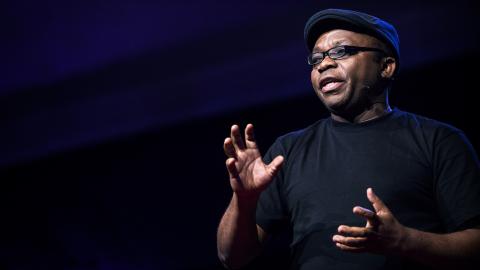
It is at this point that the lure of a paradise intersects with good and evil deeds, compassionate and cruel acts, virtuous and criminal activities in this world.
A paradise is one of the most powerful inventions of religions. It is a facility that religions have used to attract, hold, and control believers. A post mortem life in heaven is one of religion’s most cherished goods. It is one of the religion’s most sort-after commodities. Religions portray life in paradise as joyful, pleasurable, and blissful, as free from all suffering and pain, as bountiful and glorious, as a worthwhile pursuit. Religions present life in paradise as attractive and as the perfection of existence.
As the primary abode of God/Allah, and the convention venue for all angels and saints and other benevolent celestial forces, a paradise is the localization of the hereafter, the afterlife, and the great beyond. The idea of a paradise is one of the pillars on which religions and supernatural faiths rest. All believers look forward to going to a paradise. Believers aspire to make heaven and be with God or Allah. Believers long to partake in this life of eternal bliss.

For believers, life in this world is a race to make heaven, a race from a wretched world towards a paradise in the next world. All believers want to participate in this ultimate race. No believer wants to be left out of this endeavor. No believer wants to miss the prize of eternal life with Allah.
Incidentally, paradise is not a matter of fact. Eternal life in yet-to-be-located heaven is an illusion. The idea of a paradise is a matter of belief, or better, a matter of faith. A paradise is religion’s answer, comforting answer, to death, human misery, and mortality. It removes the stoppage that death places on life in this world. The idea of a paradise in the hereafter substitutes this life’s finitude with another life’s infinitude. It provides a continuation and a consolation. The facility of a paradise soothes the pain and agony of this worldly life by literally saying: Life does not end here. Life continues in the hereafter. There is a better life somewhere, and it is a life of eternal happiness.
Critically speaking, the idea of a paradise is absurd and counter-intuitive. There is no evidence that such a place exists anywhere. There is no justification that life continues after death as religions teach and preach. However, the proposition that a paradise exists in the hereafter maintains a stranglehold on the minds of believers across cultures and societies.
Given the notion that death ushers every faithful into that life of eternal bliss, the lure of a paradise is the propelling force for the existence and endurance of this life. Paradise makes believers not to see death as a frightful end to this life as we know it. Instead, for believers, death closes this world’s chapter of life and opens the next world/life’s chapter. Meanwhile, a paradise is not an automatic heritage for all humans who die, and for all believers who have embraced their mortality.
To make it into a paradise, believers must qualify through their actions and deeds in this life and this world. It is at this point that the lure of a paradise intersects with good and evil deeds, compassionate and cruel acts, virtuous and criminal activities in this world. The quest to enter a paradise motivates believers to perform acts of love, selflessness, and kindness. For instance, many Muslims give alms to the poor; they feed the hungry, visit the sick in the hospital, and support elderly persons. They engage in these activities with the hope that Allah would reward them in the hereafter. Simply put, Muslims hope that these acts of kindness and love would lead to a seamless passage into a paradise.
However, the desire to inherit heaven motivates people to commit acts of evil and wickedness. The idea of an inheritable paradise makes believers accord little or no value to this life, to humanity and this world. It gets religious believers to engage in atrocities with impunity. The lure of a paradise turns believers into monsters, and vicious human beings.
The quest for a paradise is at the root of jihadist Islam and a vicious form of the Muslim faith that is terrorizing the world. It propels Muslims to carry out human sacrifice and bloodletting; suicide, genocide, fratricide, patricide, uxoricide, infanticide, and other acts of ‘man’s inhumanity to man’. Muslim zealots who are behind the arrest and detention of Mubarak Bala are aware that Bala’s post on Facebook was harmless. But they are blinded. Their minds have been polluted. These Muslims have mentally been held hostage. They are driven by the lure of a post-mortem eternal bliss and the quest to inherit 72 virgins in the hereafter.
Muslim zealots who are campaigning to kill Mubarak Bala know that murder is wrong and against the law. But the lure of a paradise has corrupted and poisoned their sense of morality, decency, and legality. Muslim clerics have indoctrinated and brainwashed young Muslims to strongly believe that a paradise is real and awaits them in the hereafter. So, they live their lives caring for nothing else and nobody else except what would make them inherit a paradise.
As state actors, these brainwashed Muslims use state institutions including the police and judiciary to realize this ultimate objective. They condone injustices and perpetrate any other acts that they consider pleasing to Allah. They persecute non muslims and ex-muslims, turn a blind eye on bloodletting by muslims and enable other illegalities in the name of Islam in order to secure a place in Allah's bosom. The path of Islamic extremism is paved with the rabid quest to inherit a paradise.